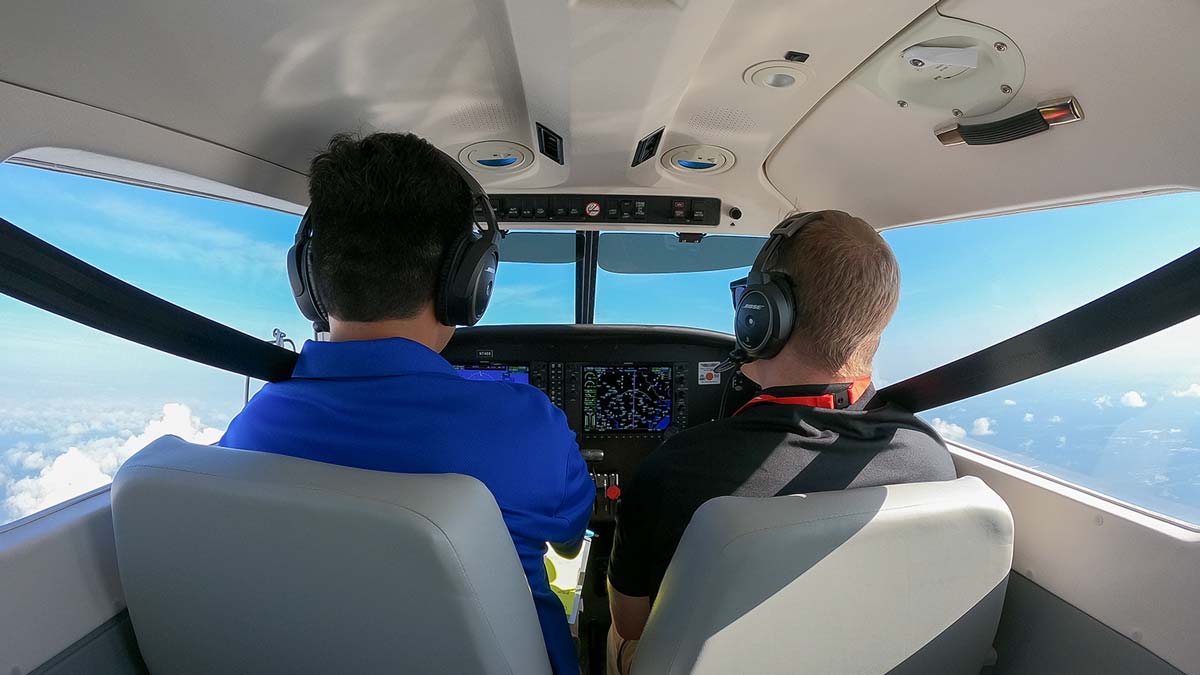If you ask a child what they’d love to do as they get older, they’ll still answer “pilot”. This is a career that provides adventure, technical rigor and freedom. Once the dream becomes a realisation, every pilot starts to ask what do pilots earn?
The answer isn’t so simple as numbers. Understanding the current salary of airline pilots is navigating a complex mix of starting wages and growth rates, benefit structures, and real-life trade-offs that affect the financial side of aviation.
Starting Small: Why Many Pilots begin in the Regional World
Many pilots don’t have the ability to enter the Boeing 787 cockpit as soon as they get there. Their careers typically begin at regional airlines that fly smaller aircraft and fewer routes. The pay for these entry-level positions reflects the fact that they’re a the training ground for the future captains.

Image credit: flightschoolusa.com
Pay for regional airline pilots will vary between $45,000 and $70,000. This depends on the airline and the pilot’s age and whether they are newly graduated or has previous flight experience. Regional experience can seem as if it’s not worth the expense of flight schools, but it’s the key to greater opportunities. Regional airlines are increasing pay quickly due to a shortage of pilots.
Commercial Pilot Salary: It’s Not What You Think!
This is where the fun begins. You don’t need commercial pilot’s licence to fly for the major airline. It means you’re licensed to receive a fee for your periods of flying. You can fly cargo, charters, or sightseeing jets. Each one of these options comes with distinct compensation packages.
A charter pilot may make $60,000 while corporate captains of the Gulfstream G650 can take home $200,000+ each year. The scope of the commercial pilot salary varies so widely because the roles and risks vary too. In contrast to the formal seniority system for airlines, commercial sector tend to base pay on negotiation the type of aircraft, as well as contract terms with customers.
The numbers begin to grow massive
The salary of a pilot USA for those who advance through the ranks and become a part of an airline that is major and begin to earn a salary, the prospects become more attractive. A first officer at one of the major U.S. airline might earn between $90,000 and $150,000. Meanwhile, a senior captain flying international wide-body routes can earn anywhere from $300,000 to $400,000 and occasionally more with overtime or bonuses.
These numbers do not tell the full picture. The high rate of seniority can be coupled with an intense schedule, long-distance fatigue and lifestyle compromises. An enjoyable career isn’t always glamourous.
What the Paycheck Don’t Show
Benefits are an essential part of any discussion on the salaries of airline pilots. Many pilots put value in these benefits beyond the dollar amount. From medical insurance coverage that is comprehensive and pension plans to travel benefits which extend to family members, the perks can make a noticeable impact on the overall quality of life.
Many airlines also offer sign-on bonuses (often between $15,000 to $75,000) for experienced pilots. This is particularly true for those who have military experience or special type ratings. These bonuses indicate a pressing demand for experienced pilots, given the aging pilot population and the increasing demand for travel in the U.S.
What is the value of a job?
In the US, becoming licensed pilot isn’t just difficult, but also costly. Training for flight can cost anywhere between $70,000-$150,000. Many pilots won’t make six figures for a few years. The long-term advantages are evident.
The work of a pilot is often predictable, with a logical development and schedule that can be sought-after by other occupations. The perspective from the cockpit as well as the satisfaction that comes with flying a plane is much more important than the amount of money earned.
Final Thoughts
The pilot salary in America isn’t about the numbers, it’s more about the journey, development and life style. The job of pilots is not just an opportunity to earn money but also an opportunity to live. It doesn’t matter if you’re interested in local jobs such as commercial charters or long-haul international flights. Each move will bring not only higher earnings, but also a wider perspective.